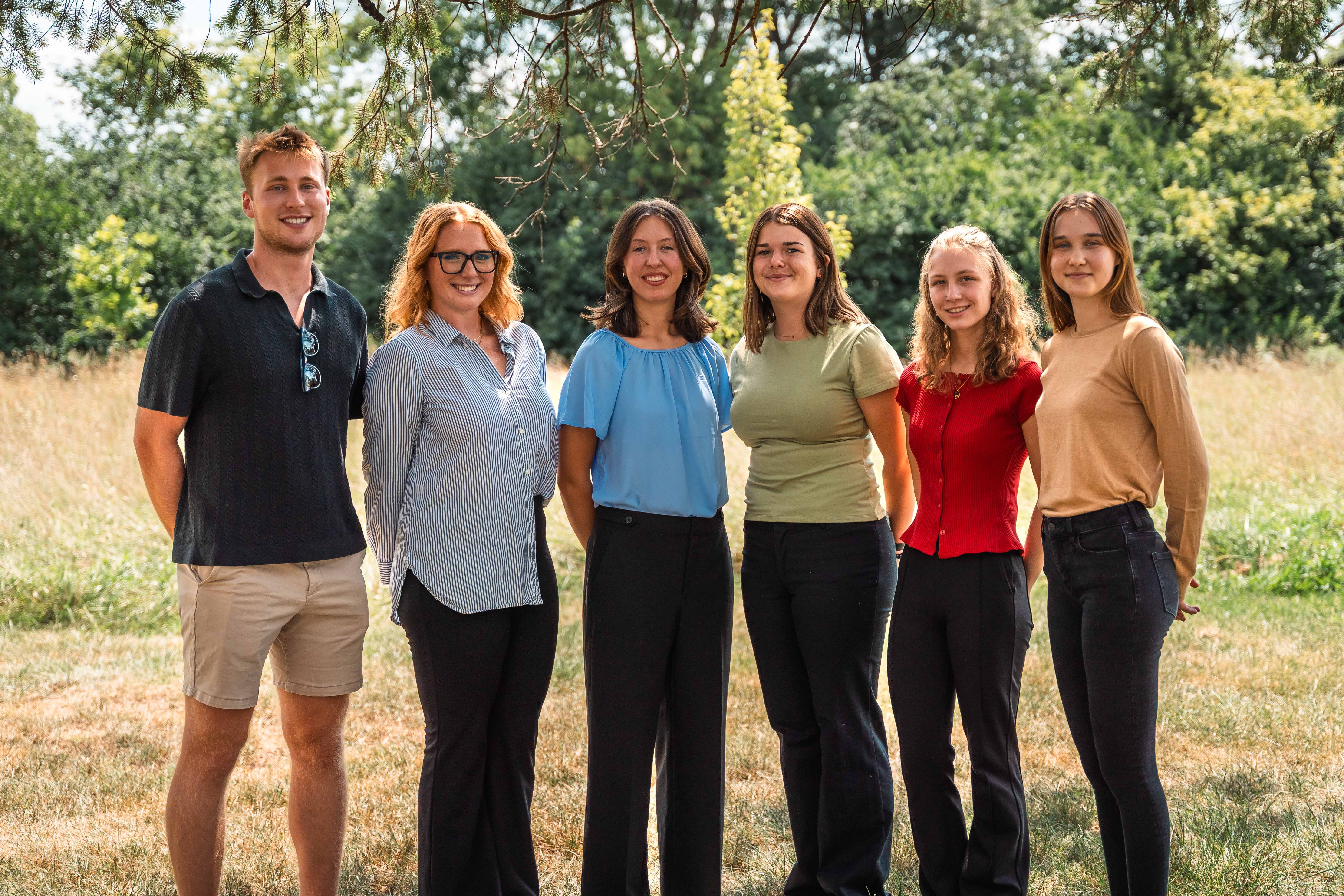Behind every compost bin, recycling audit and sustainability tabling event at Ohio State is a passionate team of student interns working to help make the university a leader in zero-waste practices. These interns are not only gaining hands-on experience, they’re also helping shape a more sustainable campus.
For many of the students, the internship is more than just a job.
“I am interning with the Zero Waste team to gain hands-on experience and turn my passion for sustainability into meaningful action across campus and beyond,” said Katherine Burlingame, a junior majoring in environment, economy, development and sustainability.
Tabitha Mueller, also an environment, economy, development and sustainability major, said she appreciates the opportunity to apply her studies in real ways. “I love being able to have hands-on experience increasing sustainability on campus,” Mueller said. “Getting to be the person who is able to carry out innovative ways to divert material from landfills is very rewarding.”
For Elizabeth Romshe, a senior who has been with the program for nearly two years, the experience has helped her clarify her career path. “When I first started this internship, I thought I wanted to work on the corporate side with emissions data,” she said. “Though this still sparks my interest, this internship has shown me the value of being hands-on with waste diversion.”
Interns take on a wide variety of roles, from educational outreach to infrastructure improvements, research and waste audits. Each student brings unique strengths and interests to the Zero Waste team.
“Our largest project is to regulate the waste signage across campus buildings,” Romshe said. “The interns are hands-on with pairing Ohio State ErgoCan recycling bins and trash cans, attaching backboard signs and ensuring consistency in signage across campus. It’s simple, but it’s incredibly effective in reducing contamination.”
Luke Bracken, who supports data collection and tracking, has led audits on bin abundance and liner usage across five zones on campus. “I’ve developed post-inspection reports that have resulted in substantial cost savings across the university,” he said. “My average day is a great mix of hands-on sustainability work and producing deliverables.”
Emma VanBuren, who works with the general FOD sustainability team, has contributed to making operations more efficient through research. “Most of the work I do is research on sustainable plans, standards and technologies to help the university,” she said. “It’s been rewarding to supplement my research with knowledge I’ve gained in class.”
Beyond infrastructure and data, the Zero Waste team is deeply involved in educating Buckeyes across campus.
“We offer the opportunity for students, staff and faculty to collect their compostable items at home,” Romshe said. “We educate on what can and can’t be composted, where all the drop-off locations are, and how we deal with compost at Ohio State.”
Lilah Conway, a sophomore in the program, agrees. “I’ve learned first-hand that infrastructure is not enough. Education and accessible communication are just as important.”
“Operating an entire university through the lens of sustainability is challenging, but worth it,” Burlingame said. “I’d love to spearhead an educational program to promote how students can reduce their waste and be more sustainable.”
One of the most common takeaways among the interns is learning just how complex and collaborative sustainability work is.
“This internship has helped me understand what it means to be on the ground implementing goals,” said Justina Dieck, who is entering her senior year. “It’s hard work, but incredibly rewarding.”
Many interns say they see their time with the Zero Waste team and FOD sustainability as a launchpad into careers in sustainability, whether in corporate settings, policy or environmental law.
“I hope to go into corporate sustainability or work in policy to support a more sustainable future,” Conway said.
“I hope to keep learning about sustainable practices and help implement them on varying scales,” VanBuren said.
“You have to have a true passion and drive to be willing to put in the work to strive for change,” Burlingame said, who is considering law school with a focus on environmental law.
The work of the Zero Waste interns starts with bins and signage, but it ends with meaningful connections, stronger career paths and a more sustainable Ohio State.
